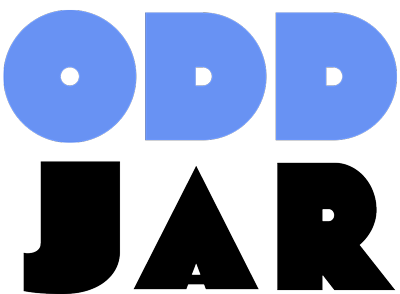Video content has become the backbone of modern digital communication, with 85% of businesses using video as a marketing tool. If you’re running a WordPress site and want to harness the power of Loom’s screen recording capabilities, you’ve come to the right place. This comprehensive guide will walk you through every aspect of integrating Loom with WordPress, from basic embedding to advanced automation solutions.
Whether you’re creating tutorials, customer support videos, or marketing content, the right loom wordpress integration can transform how you communicate with your audience. We’ll explore multiple approaches, compare different plugins, and help you choose the perfect solution for your needs.

Understanding Loom and WordPress Integration Basics
Before diving into specific solutions, let’s establish what we mean by Loom WordPress integration. Loom is a powerful screen and webcam recording tool that creates instant shareable videos. The challenge lies in seamlessly incorporating these videos into your WordPress workflow.
There are several approaches to achieve this integration:
- Manual embedding – Copy-paste Loom URLs or embed codes
- Plugin-based solutions – Automated embedding with enhanced features
- Form integration – Recording videos directly within contact forms
- Content management – Organized video libraries within WordPress
Each method has its pros and cons, which we’ll explore in detail. The key is finding the approach that matches your technical comfort level and specific use cases.
Pro Tip
Start with manual embedding to test your workflow, then upgrade to plugin solutions as your video content strategy grows. This approach helps you understand your actual needs before investing in advanced tools.
Manual Loom Embedding: The Foundation
The simplest way to add Loom videos to WordPress is through manual embedding. When you create a video on Loom, you get several sharing options including a direct link, embed code, and thumbnail image.
For WordPress integration, you have three primary options:
- Direct URL pasting – WordPress automatically converts Loom URLs into embedded players
- Embed block usage – Use the Gutenberg embed block for more control
- HTML embedding – Paste the full embed code in HTML blocks
While manual embedding works well for occasional videos, it becomes cumbersome when you’re regularly adding Loom content. That’s where specialized plugins come into play.
Plugin-Based Solutions Comparison
Several WordPress plugins can enhance your loom wordpress integration experience. Let’s compare the most popular options:
| Plugin | Key Features | Best For | Price |
|---|---|---|---|
| EmbedPress | Universal embedding, custom players, analytics | General video embedding | Free + Premium |
| Vloomp by Odd Jar | Loom-specific features, bulk management, custom styling | Loom-heavy websites | Premium |
| Video Embedder | Multiple platforms, responsive design | Multi-platform video content | Free + Premium |
EmbedPress: The Universal Solution
EmbedPress is a comprehensive embedding plugin that supports over 100 platforms, including Loom. It’s perfect if you’re working with multiple video platforms beyond just Loom.
Key advantages include:
- One-click embedding from URLs
- Custom player styling options
- Built-in analytics tracking
- Responsive design optimization
However, because it’s designed for universal use, it lacks Loom-specific features that might be valuable for heavy Loom users.
Vloomp by Odd Jar: The Loom Specialist
Full disclosure – this is our plugin, but we’ll give you the real scoop. Vloomp by Odd Jar was designed specifically for WordPress sites that rely heavily on Loom videos. It bridges the gap between Loom’s recording capabilities and WordPress’s content management needs.
What makes Vloomp unique:
- Automatic Loom video import and organization
- Bulk video management within WordPress
- Custom video galleries and playlists
- Advanced embedding options with custom styling
- Integration with WordPress analytics systems
The plugin shines when you’re creating video-heavy content like course materials, product demonstrations, or comprehensive tutorials. It’s probably overkill if you only occasionally embed Loom videos.
Mobile Limitation Alert
Remember that Loom’s mobile recording capabilities are limited compared to desktop. Plan your video strategy accordingly, especially if you’re targeting mobile-first audiences.
Form Integration: Recording Videos Within Contact Forms
One of the most innovative applications of loom wordpress integration is within contact forms. This approach allows visitors to record video messages directly through your contact forms, creating a more personal connection.

Loom for Gravity Forms by Odd Jar
Again, full transparency – this is another one of our plugins. Loom for Gravity Forms adds video recording capabilities directly to Gravity Forms, one of WordPress’s most popular form builders.
Here’s how it works:
- Add a Loom field to any Gravity Form
- Visitors click the record button within the form
- They record their message using Loom’s interface
- The video is automatically attached to the form submission
This integration is particularly valuable for:
- Customer support requests with visual explanations
- Job applications with video introductions
- Product feedback with screen recordings
- Educational submissions and assessments
You can enhance your form analytics by combining this with tools like our Form Analytics Pro to track video submission patterns and optimize your conversion rates.
Alternative Form Solutions
If you’re not using Gravity Forms, you have other options:
| Form Builder | Loom Integration Method | Complexity |
|---|---|---|
| WPForms | Manual embed in form description | Medium |
| Contact Form 7 | Custom HTML with Loom embed | High |
| Elementor Forms | Widget-based embedding | Low |
Advanced Integration Strategies
For WordPress sites with sophisticated video content strategies, basic embedding isn’t enough. Advanced Loom WordPress integration involves automation, content organization, and performance optimization.
API-Based Automation
Loom provides a robust API that allows for programmatic integration with WordPress. This approach is ideal for developers who want to create custom workflows.
Common API use cases include:
- Automatic video imports based on Loom workspace activity
- Bulk video processing and metadata extraction
- Custom video management dashboards within WordPress
- Integration with membership sites for course content delivery
While powerful, API integration requires development skills and ongoing maintenance. Consider this approach only if you have specific requirements that existing plugins can’t meet.
Performance Optimization
Video content can significantly impact your site’s performance. Here are strategies to maintain fast loading times while integrating Loom videos:
- Lazy loading – Load videos only when they’re about to be viewed
- Thumbnail optimization – Use optimized thumbnail images as placeholders
- CDN integration – Leverage Loom’s CDN for global content delivery
- Caching strategies – Implement proper caching for video metadata
Many of these optimizations are automatically handled by quality plugins, but manual implementations require careful consideration of your site’s overall WordPress performance optimization strategy.
Search Enhancement
Make your video content discoverable by implementing proper metadata management. Consider tools like our advanced search solutions to help users find specific video content across your site.
Choosing the Right Integration Method
With multiple integration options available, choosing the right approach depends on your specific needs and constraints. Here’s a decision framework to guide your choice:
| Use Case | Recommended Solution | Key Considerations |
|---|---|---|
| Occasional video embedding | Manual embedding | Simplicity, no additional costs |
| Multi-platform video content | EmbedPress | Universal compatibility, analytics |
| Loom-heavy content strategy | Vloomp by Odd Jar | Specialized features, bulk management |
| Interactive form submissions | Loom for Gravity Forms | User engagement, personal connection |
| Enterprise-level automation | Custom API integration | Development resources, maintenance |
Implementation Best Practices
Regardless of which integration method you choose, following these best practices will ensure optimal results:
Content Strategy
Develop a clear video content strategy before implementing your loom wordpress integration:
- Define your video types – Tutorials, testimonials, product demos, etc.
- Establish naming conventions – Consistent video titles and descriptions
- Plan your video organization – Categories, tags, and series structure
- Set quality standards – Audio quality, visual clarity, and duration guidelines
A well-planned content strategy makes integration smoother and more effective in the long run.
User Experience Optimization
Consider your audience’s experience when implementing video integration:
- Mobile responsiveness – Ensure videos display properly on all devices
- Loading performance – Optimize for fast initial page loads
- Accessibility features – Include captions and transcripts where possible
- Navigation aids – Provide clear video controls and progress indicators
Remember that video content should enhance, not hinder, the user experience on your WordPress site.
Troubleshooting Common Issues
Even with the best integration setup, you may encounter issues. Here are solutions to common loom wordpress integration problems:
Embedding Problems
If videos aren’t displaying correctly:
- Check that Loom videos are set to public or have proper sharing permissions
- Verify that your WordPress theme supports video embeds
- Test with different browsers to identify compatibility issues
- Ensure your hosting provider doesn’t block external video embeds
Performance Issues
If videos are slowing down your site:
- Implement lazy loading for videos below the fold
- Optimize thumbnail images for faster loading
- Consider using a dedicated video hosting solution for high-traffic sites
- Monitor your site’s performance regularly and adjust as needed
Mobile Compatibility
If videos aren’t working well on mobile devices:
- Test your integration on various mobile browsers
- Ensure your theme is fully responsive
- Consider mobile-specific video layouts
- Provide alternative content for users who can’t view videos
Future-Proofing Your Integration
As both Loom and WordPress continue to evolve, it’s important to choose integration methods that can adapt to changes. Here’s what to consider for long-term success:
Platform Updates
Stay informed about updates to both platforms:
- Subscribe to Loom’s blog for feature announcements
- Keep your WordPress plugins and themes updated
- Test integrations after major platform updates
- Have backup plans for critical video content
Scalability Planning
Consider how your video needs might grow:
- Choose solutions that can handle increased video volume
- Plan for additional team members who might need access
- Consider enterprise features you might need in the future
- Evaluate cost scaling as your usage grows
Integration with AI and Modern WordPress Tools
The WordPress ecosystem is rapidly evolving with AI integration becoming increasingly important. Consider how your Loom WordPress integration fits into the broader landscape of modern WordPress AI tools.
Some emerging trends to watch:
- AI-powered video transcription and search
- Automated video content optimization
- Intelligent video recommendations
- Voice-to-video content creation workflows
If you’re interested in staying ahead of the curve, consider exploring AI-assisted plugin development to create custom video integration solutions tailored to your specific needs.
Community Support
Join WordPress and Loom community forums to stay updated on integration best practices and troubleshoot issues with fellow users. The collective knowledge of these communities is invaluable for optimizing your video strategy.
Conclusion: Making the Right Choice for Your Site
Successful loom wordpress integration isn’t just about embedding videos—it’s about creating a seamless experience that serves your content goals and audience needs. Whether you choose manual embedding for simplicity, a universal plugin like EmbedPress for versatility, or specialized tools like our Vloomp and Loom for Gravity Forms plugins for advanced functionality, the key is matching your choice to your actual requirements.
Start small, test thoroughly, and scale your integration as your video content strategy develops. Remember that the best integration is the one that your team will actually use consistently and that provides genuine value to your audience.
As video content continues to dominate digital communication, having a robust loom wordpress integration strategy will keep your site competitive and engaging. Take the time to implement it properly, and you’ll have a powerful tool for connecting with your audience through the compelling medium of video.
Ready to get started? Begin with the integration method that best fits your current needs, and don’t hesitate to evolve your approach as your requirements change. The investment in proper video integration will pay dividends in user engagement, content effectiveness, and overall site performance.

